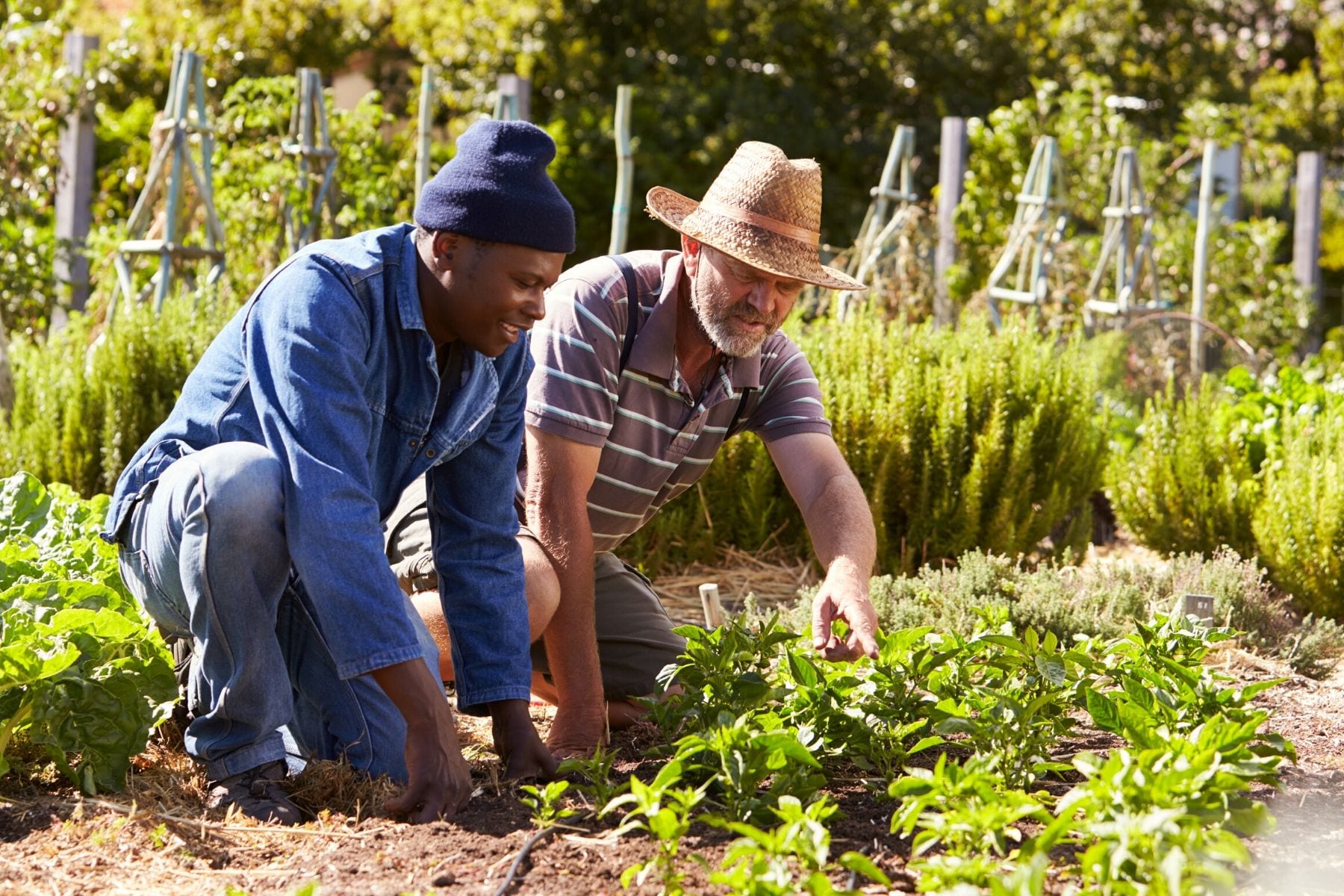
When many people think of gardening, they picture an antiquated skill that requires hard labor and yields unpredictable results. But gardening is much more getting your hands dirty. It is a timeless practice that can help you build your strength and stamina, while also providing a healthy outlet that we all need during these turbulent times. But, in addition to helping us heal our land and ourselves, gardening is also a pathway to healing our communities.
To get a better insight into the healing powers of gardening, I spoke with Raqueeb Bey, the founder and executive director of the Black Urban Gardeners and Farmers Of Pittsburgh Co-Op (also known as BUGs), on how gardening can positively impact the wellbeing of ourselves and our communities.
Bey’s gardening journey began as a child, but after years of tending to community gardens, her knowledge enriches more than just the soil. Bey has seen the impact that gardening can make on our bodies that goes beyond building strength. “Studies show that when we put our hands in soil,” Bey explains, “it lowers our blood pressure and can physically make you feel better.”
Bey has also noticed the positive mental effects of gardening, explaining that, “When you garden, you feel like you’ve completed a task and achieved something positive.” Many gardeners attest to this sense of pride and accomplishment, but in addition to the mental benefits. The Homewood Community Garden that Bey oversees is currently growing herbs that she says can have medicinal qualities, like being able to treat anxiety, stress, PTSD, and more.
Aside from healing our physical bodies, Bey also notes that gardening can also be a way to heal communities — especially ones that have been affected by Food Apartheid. If you aren’t familiar with the term, Food Apartheid is when a community lacks access to grocery stores due to systemic racism that has permeated America’s food system. Simply put, many grocery stores refuse to open in black neighborhoods. The result is a lack of good quality and affordable fresh food in these communities, which can lead to nutritional deficiencies, illnesses, and the continuation of the cycle of poverty. By having a community garden and teaching members of this community how to grow their own food, organizations like BUGs are helping address systemic inequalities and providing the sustenance these communities need in order to survive and thrive.
BUGs’ community gardens don’t just supply the locals with fresh herbs and produce, they also are a wonderful way to teach children and adults alike how to create their own gardens at home. But it goes even further, says Bey, “These spaces clean up the community and beautify it. The garden lets our neighbors know what’s possible — it gives people hope.”
Due to the impressive output of their gardens, BUGs is able to also supply the community with seedlings and prepared meals, which during this extremely difficult time for many individuals and families, is incredibly crucial. During this quarantine season, if you’re looking for a safe way to do good for your physical and emotional health — all while doing your part to heal communities — please consider volunteering, donating, or participating in one of BUGs many events.
Please visit their website, bugfpc.com, for more information.

Leave A Comment